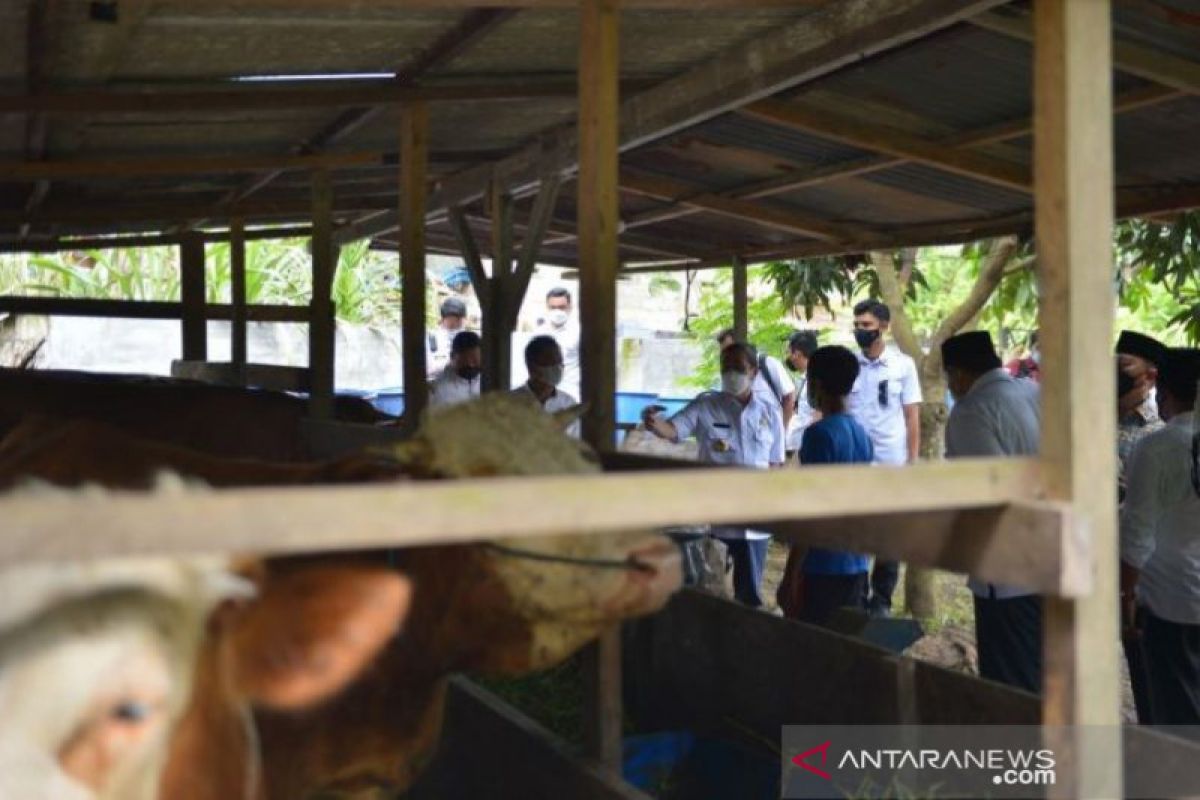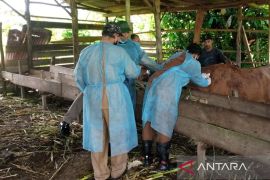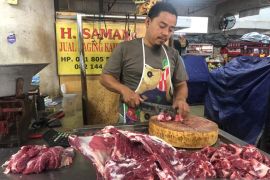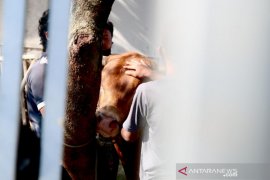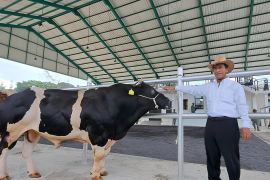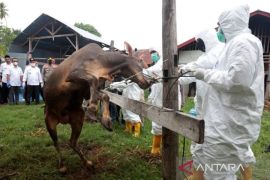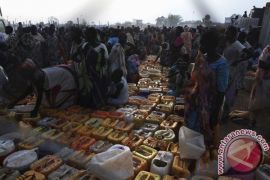"These five checkpoints were established at the inter-provincial border, particularly to monitor the (distribution) of sacrificial cattle to Riau from the neighboring provinces," head of the Riau Animal Husbandry and Animal Health Office stated, as reiterated by Head of the Animal Health Division Faralinda Sari in Pekanbaru on Saturday.
He said the five posts were in Rokan Hilir and Rokan Hulu, both of which were adjacent to North Sumatra Province.
The post was also situated in Kampar District that borders West Sumatra, then in Kuantan Singingi and in Selensen, Indragiri Hilir, which were the entrance to Lampung and Java.
"In each post, there are dispatched personnel. (There are) three people to inspect vehicles transporting animals from outside the province. If the documents are incomplete, they will be urged to turn back," he stated.
Related news: MUI readies guidelines to anticipate FMD in livestock for Eid
Riau is currently conducting strict monitoring on cattle trade distribution, particularly after FMD cases were discovered in three areas, though it did not mean that the trade had been stopped altogether. It could still be conducted only if it were done in accordance with the procedure.
"It is still permissible to buy cattle from outside the province, (from the place) where there are no cases of FMD, provided that the management of recommendations for the import of livestock has a permit for recommendations for the import of livestock between provinces (issued by the) Riau Integrated Service and Investment Office (DPMPTSP)," he remarked.
Also mandatory are a certificate of animal health, laboratory test results, and no history of FMD infection in the last 30 days.
"In this place, Sumatra, only Bengkulu has no case of FMD. Other areas have been infected, including Riau. Thus, we have established a check point (inspection) post," he remarked.
According to data from the livestock office, the availability or stock of sacrificial animals, either cows, buffaloes, and goats in Riau Province to meet the needs during Eid al-Adha, was only 12 thousand, or 30 percent, which was way less than the total demand of some 42 thousand cattle.
This condition made it harder for people to find cows for Eid al-Adha. It was made worse, as the neighbouring provinces, which usually supplied the animals, were currently reeling from the outbreak.
Related news: Legislator calls for tight inspection of sacrificial animals
Translator: Bayu A A, Vera Lusiana, Mecca
Editor: Suharto
Copyright © ANTARA 2022
